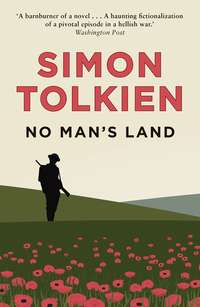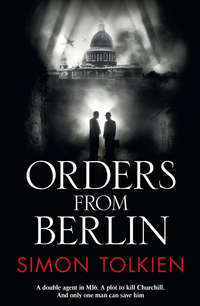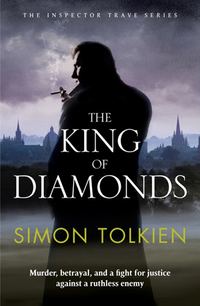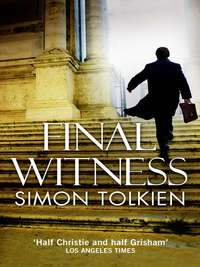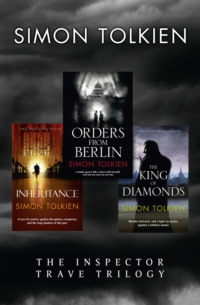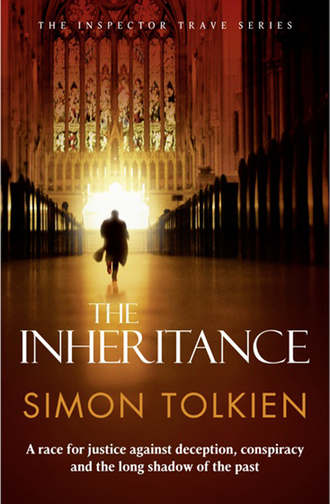
Полная версия
The Inheritance
Swift was the son of the second to last Lord Chancellor, born with a solid silver spoon in his mouth. He’d been educated at Eton and Oxford. He was rich and well liked. A true war hero. He was, in short, everything that Thompson was not, and Thompson hated him for it, hated him secretly and with a passion. This high-profile case was exactly what Thompson had been praying for. He’d get his conviction, and he’d make a fool of John Swift in the process. No one would call him Tiny Thompson after this or poke fun at his working-class origins behind his back. Swift sensed the prosecutor’s malevolence, but there were other, more pressing things on his mind as he began his cross-examination of Inspector Trave. He couldn’t get a handle on the case. He needed a way in and he couldn’t find one, though it wasn’t for want of trying.
‘My client was arrested on the same night that his father’s body was discovered. Is that right, Inspector?’ asked Swift.
‘Yes. On the fifth of June. He was arrested on the basis of what we were told by Mr Ritter at the scene. That the defendant had unlocked the door of the study from the inside to let him in.’
‘And Mr Ritter was the first to respond to my client shouting in the study?’
‘I don’t think I can answer that, I’m afraid. I can only tell you the reason why we arrested Stephen Cade. I can’t give direct evidence about what happened in the house before I arrived.’
‘Of course he can’t. You shouldn’t need a policeman to tell you that, Mr Swift,’ said Judge Murdoch irritably. ‘How can the inspector know who shouted, or if anyone shouted for that matter?’
‘He can’t, my lord. I’m sorry. Let me ask you about the cause of death, Inspector. Only one bullet had been fired from the pistol that you found on the side table. Is that right?’
‘Yes.’
‘And it had entered the professor’s forehead?’
‘Yes. And lodged in his brain.’
‘To use a popular expression, he’d been shot between the eyes.’
‘Just above a point between the eyes.’
‘Thank you. It was an execution-type shooting. That’s my point. Would you agree with that description?’
‘Yes, I suppose so.’
‘To achieve that kind of precision with a bullet, wouldn’t you need considerable skill as a marksman?’
‘I don’t know. I’m not an expert.’
‘No. Quite right, Inspector. You’re not,’ said the judge. ‘Is there evidence of the distance from which the shot was fired, Mr Thompson?’
‘About twelve feet according to the report, my lord,’ said the prosecutor, reading from one of his many files.
‘I see. Not exactly a great distance, Mr Swift.’
‘No, my lord. I’ve made my point. I’ll move on. You’ve told us about Mr and Mrs Ritter, Inspector. Who else was in the house on the night of the murder?’
‘The defendant’s girlfriend, Mary Martin; his elder brother, Silas Cade; and Sasha Vigne.’
‘Who’s she?’
‘She was Professor Cade’s personal assistant. The professor had a large collection of valuable manuscripts, which were housed in a gallery on the first floor of the main body of the house. It’s my understanding that she helped the professor with cataloguing them and with research for a book that he was writing on medieval art history.’
‘I see. Now where were these other people located in the house?’
‘Everyone was in the drawing room when I arrived. Awaiting questioning.’
‘No, that’s not what I meant, Inspector. Where were their bedrooms?’
‘All on the first floor of the west wing. Only the Ritters and Professor Cade himself slept on the east side.’
‘And what about the grounds? They’re quite extensive, aren’t they?’
‘Yes. There are stone terraces around the house with lawns beyond.’
‘And quite a lot of trees as well?’
‘Yes.’
‘The drive is tree lined, is it not?’
‘Yes, it is.’
‘We don’t need a National Trust tour of the Moreton Manor gardens, Mr Swift,’ interrupted the judge. ‘What’s the point you’re trying to make?’
‘That an intruder could hide in the trees, my lord.’
‘If there was an intruder. You’d better ask the inspector about the security system. It looks fairly state-of-the-art in the photographs.’
‘I was just about to,’ said Swift, keeping a smile stretched across his features by an extraordinary effort of will. ‘Please do as his lordship asked, Inspector. Tell us about the security system.’
‘The main gate is the only exit from the grounds,’ said Trave. ‘A Tarmac drive leads up to it from the courtyard. Otherwise there’s a high brick wall surmounted by broken glass and electric wiring surrounding the estate. The wiring is connected to an alarm system operated from inside the house.’
‘I see. The professor must have been very worried about the possibility of a break-in. Would you agree that the system would have cost a lot of money?’
‘Yes. I’d say so.’
‘And what about the main gate? How is that opened?’
‘It’s also operated electronically either from a unit beside the gate or by remote control from inside the house.’
‘Was the gate open or closed when police arrived?’
‘Officers Clayton and Watts were the first to attend. It’s my understanding that they found the gate closed.’
‘And what about the doors of the house itself?’
‘I entered through the main front door, which was half open when I arrived. All the other exit doors of the property were locked except for the French windows in the professor’s study, which were also partially open, and the door at the front of the west wing, which was closed but not locked.’
‘These French windows to the study. There are thick, floor-length curtains in front of them. Isn’t that right, Inspector?’
‘Yes. They were half drawn.’
‘And there would be space between the curtains and the doors for a person to hide if he wanted to?’
‘I suppose so.’
‘Making him invisible to a person inside the room.’
‘Yes.’
‘Thank you. Now Mr Thompson asked you some questions about my client’s interview …’
‘One moment, Mr Swift,’ interrupted the judge. ‘I’m sure you want the members of the jury to have a full picture of this security system. Isn’t that right?’
‘Yes, my lord.’
‘Well, perhaps the inspector can help us with whether there is any record of the alarm going off on the night of the murder.’
‘No record, my lord,’ said Trave.
‘And is there any forensic evidence of anyone breaking into the house or the grounds? Any disturbance to the broken glass on top of the perimeter wall that you were telling us about? Any cut wires?’
‘No, there was nothing like that.’
‘Thank you, Inspector. I just wanted to clear that up, Mr Swift.’
‘Of course, my lord,’ said the defence counsel, trying not to allow his irritation to creep into his voice. ‘Now, Inspector, you will recall that my client told you that he walked up to the main gate twice that evening.’
‘Yes. Once before his interview with his father and once afterwards.’
‘And on the first occasion he told you that he found the main gate open.’
‘Yes. He said that he closed it. And that it was still closed when he went back there after seeing his father.’
‘Thank you. Now, what else did my client tell you about his first visit to the main gate?’
‘He said that he saw a black Mercedes parked on the verge a little further down the road on the opposite side from the gate. It was parked beside a public telephone box, and the door of the kiosk seemed to be wedged open. He said that he saw the same thing when he went back there an hour later.’
‘Did he say that he saw the driver of the car on either occasion?’
‘He said he could see the figure of the driver but nothing more than that.’
‘Why are we hearing about all this now, Mr Swift?’ asked the judge. ‘Your client’s interview can be read to the jury at the appropriate time, and he himself can give evidence about what happened if he chooses to.’
The judge’s tone of voice made it clear that he thought the defendant might have very good reasons for not going into the witness box and exposing himself to cross-examination. But Swift was ready for the judge this time.
‘It’s a matter of timing, my lord.’
‘I know that. That’s what I just said.’
‘No, I don’t mean that. I believe that the inspector will have something else to say about the Mercedes car on the night of the murder, and it’s important that my client told the police about it before the further information became available to them.’
‘All right. Well, get on with it then.’
‘Thank you, my lord. Inspector, were there any other relevant reports of a black Mercedes in the vicinity of Moreton Manor on that night?’
‘Yes. There was a car of that type stopped for speeding on the road from Moreton to Oxford. It was stopped at 11:15 p.m. The driver gave his name as Noirtier and provided an address in Oxford, which subsequently turned out to be false. He did not respond to a summons to attend court, and there has been no trace of him since. The record of the stop says that he was aged about thirty and spoke with a thick foreign accent.’
‘Did you notice the black Mercedes when you arrived at the manor house, Inspector?’
‘No. But I wasn’t the first to arrive.’
‘Yes. Officer Clayton may be able to help us. Returning to my client’s account of events in interview, Inspector, he told you that he wore his hat and coat on his first visit to the main gate. Isn’t that right?’
‘Yes.’
‘But he then left them in the study after his interview with Professor Cade.’
‘Yes, that’s what he said.’
‘The weather conditions on that night are going to be relevant here, Inspector. Would you agree that there was some light rain in the early part of the evening?’
‘Yes, it died out about eight, and it was dry after that.’
‘And the temperature was in fact quite warm.’
‘I’d say it was average for the time of year. There was some wind, as I said earlier.’
‘Thank you. Now, there’s just one other area that I want to cover with you, Inspector. My client, Stephen Cade, told you in interview about somebody else with a motive and desire to kill his father. That’s right, isn’t it?’
‘He talked about certain events involving his father that occurred in northern France in the summer of 1944.’ Trave spoke slowly, as if he were choosing his words carefully.
‘Basically, Stephen told you that he and his brother Silas discovered about two years ago that their father and Sergeant Ritter, as he then was, had killed a French family and their servants at a place called Marjean, in order to obtain a valuable medieval manuscript known as the Marjean codex.’
‘Yes. That’s what he said.’
‘And that the professor was subsequently shot and wounded in his left lung during a visit to France in 1956, which was the cause of the serious ill health that he suffered from during the last three years of his life.’
‘I believe so.’
‘And finally that the professor received a blackmail letter the following year, threatening to expose him if he did not go to London and hand over the codex.’
‘Yes.’
‘Is that a fair summary of what the defendant told you in interview about this aspect of the case, Inspector?’
‘Yes, I suppose so.’ Trave looked uncomfortable.
‘Well, then, I’m sure you know what my next question is going to be. Why didn’t you go to Marjean to investigate for yourself who shot Professor Cade in 1956 and sent him the blackmail letter the following year?’
Trave gave Swift a look of quick penetration, and then closed his eyes hard, as if he wanted to blot something out of his consciousness. When he opened them again he was looking at Gerald Thompson, and he was still looking at the prosecutor when he gave his reply.
‘It was a prosecution decision,’ he said quietly.
‘But was it your decision?’
Gerald Thompson gave Trave no chance to answer Swift’s question. ‘With respect, Mr Swift’s question is an improper one, my lord,’ he said, getting to his feet. ‘The decision to charge the defendant was based on very strong evidence of motive, opportunity, and fingerprint connection to the gun and the locked door of the study. The defendant’s interview did not change any of this, and it is not for the prosecution to build a defence.’
‘No, you’re quite right. It isn’t,’ said the judge nodding emphatically in agreement. ‘If you have an alternative explanation for the victim’s murder, then advance it in the proper way, Mr Swift. Don’t attack the prosecution for not doing your own work.’
Swift turned his head away from the judge’s glare and made a series of mental calculations. He itched to take on Murdoch, who seemed intent on conducting the trial on just the legal side of bias. But the unanswered question might play best on the jury’s mind if it remained unanswered, and he could make more mileage out of Marjean when it came to cross-examining Ritter. He had one good question left to ask the officer. He’d ask it and leave the French business hanging in the air for the present.
‘It’s right, isn’t it, Inspector, that my client, Stephen Cade, is a young man without any previous convictions? He had never been arrested before the night of his father’s murder and it was the first time he had been interviewed by the police.’
‘Yes, that’s true,’ said Trave. ‘He is a man of good character.’
Swift felt a note of resignation or even sadness in the policeman’s voice and half-wished that he had persisted with his questions about the investigation, but it was too late now. The policeman’s evidence was over.
It was the mid-morning recess and Trave waited for Thompson to come out of court. He knew he was wasting his time, but he still had to try.
‘What do you want, Inspector?’ asked the prosecutor. He didn’t make any attempt to conceal his irritation.
‘A moment of your time.’
‘Very well.’
The two men walked over to a corner of the great hall outside the court. Trave was at least a foot higher than the barrister, and his attempt to walk with a stoop so as to bring their heads closer together only accentuated Thompson’s consciousness of his shortness. The barrister’s irritation grew into outright anger.
‘What’s wrong with you, Trave?’ he said. ‘Are you trying to prosecute that young hooligan or are you trying to defend him?’
‘What are you talking about, Mr Thompson?’ Trave was unprepared for the prosecutor’s sudden verbal assault.
‘I’m talking about your evidence. About the doubt and uncertainty that you’ve been helping friend Swift throw around in there.’
‘I told the truth, Mr Thompson,’ said Trave, becoming annoyed himself. ‘And yes, I do have doubts. Frankly, I don’t understand why you don’t too. The truth is I didn’t investigate this case properly. I see that now and I feel bad about it. It’s not too late for me to go to France.’
‘Yes, it is.’ Thompson almost spat out the words. ‘Stephen Cade is guilty. I’ve got his fingerprints on the weapon and the key. Ritter heard him unlock the door. And in a few minutes the jury is going to hear from the victim’s solicitor about his motive. A powerful motive, Mr Trave. Now I’m not going to allow you or friend Swift in there to muddy the water. Do you hear me, Inspector? Stay out of it. Your work on this case is over.’
Thompson pushed past Trave, and the artificially heightened heels of his shiny black patent-leather shoes rang on the marble floor as he crossed to the door of the courtroom. After a moment Trave followed him. His work might be over, but he felt an obligation to see out its results. He sat down, waiting for Thompson to call his next witness.
Several minutes later a small balding man in a tight-fitting pinstripe suit came into court, fidgeting with his bowler hat.
‘Charles Blackburn’s my name. I’m a solicitor by profession,’ he announced in a slightly pompous voice after taking the oath.
‘Is it correct that one of your clients was the late Professor John Cade?’ asked Thompson, getting straight to the point.
‘That’s right.’
‘What work did you do for him?’
‘I looked after some of his business affairs. I drew up his will …’
‘When?’ asked Thompson, interrupting. ‘When did you do that?’
‘About seven years ago. The will had to be changed after Mrs Cade died. But it was still fairly simple. The residual beneficiaries were the professor’s sons, Stephen and Silas.’
‘And did you then have any further discussions about the will with the professor?’
‘Not until earlier this year. It would have been about a month or so before his death that we first discussed new arrangements.’
‘Tell us about those arrangements, Mr Blackburn,’ asked Thompson encouragingly.
‘Well, basically he was talking about setting up a trust to run Moreton Manor House as a museum, housing his collection of manuscripts.’
‘Who were the trustees going to be?’
‘The professor hadn’t finally decided. Sergeant Ritter was going to be one of them.’
‘What about the sons?’
‘Probably not. The effect of the change of will would have been to disinherit them.’
‘I see,’ said Thompson, pausing to allow the jury to absorb the full implications of the solicitor’s last answer. ‘Now I’d like to show you exhibit 14. It’s the professor’s engagement diary, which was found on the desk in his study. It was open at the entry for 8 June. Read us the entry please, Mr Blackburn.’
‘Blackburn. Will. Three o’clock.’
‘That’s right. Can you tell us anything about that?’ asked Thompson.
‘Yes. I had an appointment with Professor Cade at that time for him to give me final instructions, so that I could draw up the new will and trust documents.’
‘But his death prevented him from keeping the appointment.’
‘Yes.’
‘Thank you, Mr Blackburn. You’ve been most helpful. No more questions.’
Deep in the bowels of the Old Bailey, the gaolers allowed Swift a short interview with his client.
The barrister took off his horsehair wig and laid it down beside his file of papers on the iron table that separated him from Stephen. The headgear was useful sometimes for intimidating witnesses, keeping lines of division intact. But now Swift wanted to connect. He needed to get through to his client, make him understand that a change of direction was necessary.
‘The will gives them the motive, Stephen. That’s the problem.’
‘I wouldn’t have killed my father for money. Or anybody else for that matter. It’s so stupid. Can’t you see that?’ Stephen’s sudden anger took the barrister aback, even though it was not the first time that Swift had seen it. The trial was clearly beginning to take a toll on the young man.
‘Listen, Stephen,’ he said. ‘You’ve got to calm down. Take a few steps back. Get a little less passionate.’
‘Less passionate! You’d be passionate if you had to sit up there all day watching that old bastard twist everything round against me. I thought he was supposed to be impartial.’
‘He is. But there’s not much we can do about it at the moment, and your anger just plays into the prosecution’s hands,’ said Swift, putting sufficient urgency into his voice to make Stephen look him in the eye. ‘The jurors are watching you, Stephen. They can see you boiling over, and it makes them think you’re capable of doing what the prosecution says you did. Capable of killing.’
‘Whoever killed my father didn’t lose his temper. You made that point yourself when you were cross-examining that policeman. You called it an execution-type killing. Not the same as a crime of passion.’
‘No, it isn’t. But don’t bank on the jury being as clever as you, Stephen. The case against you is too strong for you to stay out of the witness box …’
‘I want to give evidence,’ said Stephen, interrupting. ‘I’d insist on it, even if you tried to stop me. They’re going to hear the truth from someone before all this is over.’
‘But the truth isn’t always enough in this place, Stephen. Can’t you see that? It’s what the jury decides is true that matters.’
‘No, I don’t see it. I’m not a cynic like you. I believe in something, even if you don’t.’
‘I believe in trying to keep you alive.’ Swift stopped suddenly. He’d have given a great deal to take back his words, but it was too late now. His need to get through to Stephen had got the better of his own judgement and had led him to break one of his most important rules: Never talk about execution to a client on a capital charge; keep him focused on the past and the present, but never the future. He’ll fall apart otherwise.
‘I’m sorry, Stephen,’ he said, breaking the awkward silence. ‘I shouldn’t have said that. Please forgive me.’
‘Okay,’ Stephen agreed softly. There was a tremor in his voice.
‘Let me start again,’ said Swift. ‘My point is that you have to keep your emotions in check, particularly when you come to give evidence. Thompson will try to provoke you into anger, and if he succeeds, he’ll turn it against you. He’s clever at what he does. I’ve seen him do it before. Many times.
‘You saw it, members of the jury, didn’t you?’ Swift said in sudden imitation of Thompson’s voice, and Stephen was struck by the accuracy of the impression. ‘You saw the way his fists clenched in rage when I asked him just a few simple questions. Imagine those hands on a pistol, members of the jury. Imagine the fingers clenching around the trigger.’
‘All right,’ said Stephen, holding up his hands. ‘I get the point. I’ll watch myself.’
‘Thank you. Now there’s one other thing. I need you to let me widen the net.’
‘What net?’
‘The net of possible suspects. This foreigner in the Mercedes just isn’t enough.’
‘But I’m not the only one who saw him. That police officer, the one who first came to the house, says in his statement that there was a car parked on the other side of the road. By the phone box.’
‘Officer Clayton?’
‘That’s right. He says that it drove off while he was buzzing to be let in at the gate.’
‘I know he does,’ said Swift patiently. ‘But the man could just have been making a phone call.’
‘Not all evening he wasn’t. I saw him twice earlier, remember.’
‘There’s only your word for that.’
‘Then what about the Frenchman in the Mercedes that was stopped for speeding? At 11:15. The time fits. You said that yourself.’
Swift could hear the anxiety creeping back into his client’s voice. He didn’t want to press Stephen any further, but he felt he had no choice.
‘Don’t worry,’ he said. ‘Clayton will give evidence, and I’ll make all the points about the Mercedes – the one at the gate and the one that was stopped for speeding. But the driver’s still never going to be anything more than a sideshow, whatever I say.’
‘Why?’
‘Well, for a start, we can’t explain how he could’ve entered the house. He can’t have come through the gate because you closed it on him when you went up there before seeing your father, and any other route of entry is scotched by this damn security system. I’m sorry to have to tell you all this, Stephen, but it’s no use denying facts. I know you think everything’s related to the blackmail letter and what happened in France fifteen years ago. But it’s all just too tenuous. We did what you asked us to. I sent an investigator over to Rouen, and the records office told him there were no close living relatives of the murdered family or their servants.’
‘Maybe he didn’t look hard enough?’
‘No, he did. I promise you he did. He went to Marjean as well, but the place is a ruin and everyone in the village said the same thing: no survivors. Same with the local police.’
‘Why couldn’t you go yourself?’
‘Because that’s not what I do,’ said Swift, trying to keep the exasperation out of his voice. ‘I’m in court almost every day, and I can’t do two different jobs even if I wanted to. The man we sent is one of the best. You can take my word for it.’
‘But didn’t you tell me before that some of the records got destroyed when the Germans invaded?’ asked Stephen, unwilling to leave the subject.




